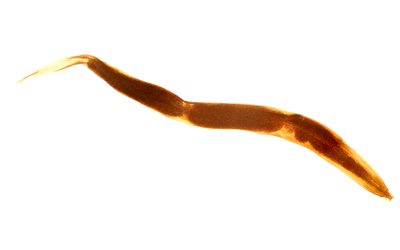Are Thread-Worms Something to be Concerned About?
Surprisingly, thread-worms are quite common, although very rarely serious. These worms infect the intestines and lay eggs around the anus which leads to it itching. The treatment for thread-worms usually involves medication and hygiene measures, but the medication only kills the worms not the eggs. The eggs themselves can actually last for around two weeks, which means that the hygiene measures are important to ensure that you don’t swallow any more eggs which can lead to a new infection. Even if members of your household don’t have symptoms, everyone needs to be treated if someone in the house has thread-worms. The worms are small, white and (as the name suggests) thread-like – they grow to be between 2mm and 13mm long. Although they are common in children, anyone can become infected with them.
Thread-worms can survive for around five to six weeks before they die, before which the females lay eggs around the anus. This usually occurs at night when you’re warm. The eggs are microscopic but lead to itching – while you’re sleeping, you scratch the area which leads to the eggs getting stuck under your fingernails. You may then swallow them if you put your finger in your mouth without realising, which spreads the infection. What many people don’t realise is that the eggs can survive outside of the body for around two weeks. This means that they can fall onto your bedding or get wafted into the air as you change clothes or make your bed, before becoming part of the dust in your home. They may settle on your toothbrush or on food, which is yet another route to you swallowing them. It is for this reason that hygiene is paramount when someone in your home has thread-worms.
If your child is itching in this area, this may be a sign of thread-worms. Although you may be able to see one or two coming out of the anus, it’s best to take them to a GP to be sure – they will advise on the best course of treatment. Your GP may do a sticky tape test, which confirms the presence of thread-worms. This involves putting a section of clear tape onto the skin around the anus first thing in the morning, before wiping or bathing, which can then be tested for eggs which will have stuck to the tape. If they are present, all members of the household will need to be treated. This is because the eggs are easily spread and may have infected other people without them realising. The most common form of treatment is a course of medicine to kill the worms in your gut, and then hygiene measures to remove any eggs from the home or your body. Your pharmacist will stock the medication required to clear the internal infection. The cleaning process involves washing all sleepwear, bedding and towels, as well as any cuddly toys your child may sleep with. You don’t need to do this on a hot wash, just as long as they are thoroughly cleaned. You should also vacuum and damp-dust your home, throwing the cloth away after use. Bedrooms should be especially taken care of, as this is where the eggs are most likely to have spread. It’s also advised that you change and wash your nightwear each night to avoid spreading the eggs further if any has stayed on your bedding, as well as showing or bathing every morning to rinse off any eggs from the body. Naturally, washing your hands before preparing food, as always, is advised to make sure that no eggs are under your fingernails before you eat.


Comments are closed.